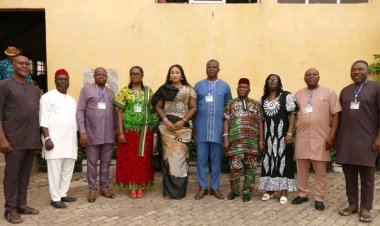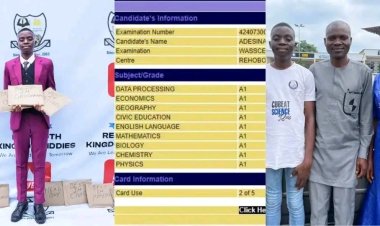World Bank Launches Generative AI Education Program in Edo State, Nigeria
The World Bank has launched a pioneering educational program in Edo State, Nigeria, aimed at improving learning outcomes through generative artificial intelligence (AI) tools. Conducted under the Education for Global Development initiative, the program involved 800 first-year senior secondary students participating in after-school English classes using Microsoft Copilot, a generative AI tool powered by ChatGPT.

he World Bank has initiated a groundbreaking program in Edo State, Nigeria, aimed at enhancing educational outcomes through the use of generative artificial intelligence (AI) tools. This initiative marks a significant step in leveraging technology to improve learning experiences in regions where educational resources are most critical.
Generative AI refers to technologies that create new content, such as conversations, stories, images, videos, and music, while mimicking human intelligence in tasks like image recognition and natural language processing (NLP).
Under its Education for Global Development initiative, the World Bank conducted an experimental program from June to July 2024, engaging 800 first-year senior secondary students in after-school English classes held twice weekly in computer laboratories. Each session began with a teacher introducing the week's topic, followed by students interacting with Microsoft Copilot, a generative AI tool powered by ChatGPT. This interaction focused on mastering grammar and writing tasks.
Teachers acted as "orchestra conductors," guiding students in utilizing large language models (LLMs) and providing suggested prompts to initiate discussions. They also mentored students throughout the AI interactions and facilitated brief reflection exercises at the end of each session.
The World Bank emphasized that generative AI presents a unique opportunity for personalized learning experiences. With advancements in AI technology, there is potential for one-to-one tutoring, allowing LLMs to engage with students in a more human-like manner and adapt to their individual learning needs.
While previous studies have highlighted AI's capacity to improve learning outcomes, they primarily focused on developed countries and relied on expensive specialized software. In contrast, this program in Edo State seeks to utilize free generative AI tools, offering a more accessible solution to enhance educational opportunities.
The initiative represents a pioneering effort in Nigeria, showcasing the potential of generative AI to transform education in underserved areas, ultimately paving the way for more inclusive and effective learning environments.

 Chris Oyeoku Okafor
Chris Oyeoku Okafor 



